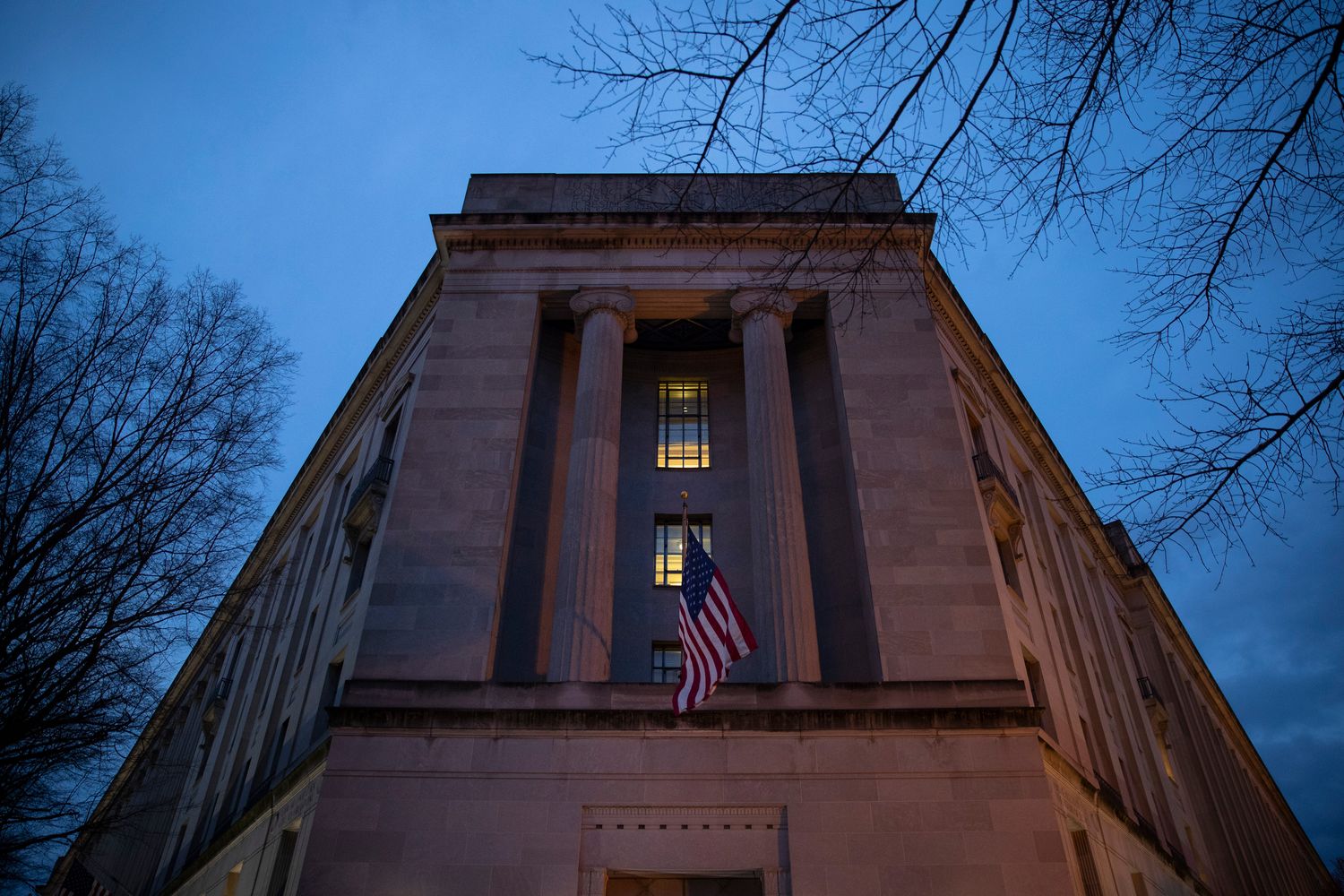
Multiple U.S. Attorney’s offices — including the Southern District of New York — wanted to handle insider trading investigations of lawmakers, one of the sources said, but all the probes have been centralized in D.C. It would have been logical for SDNY to have jurisdiction: Wall Street is located there, and the district has extensive experience investigating and prosecuting complex financial cases. Other offices that telegraphed interest were the residences of potential targets. Spokespersons for the Justice Department and SDNY declined to comment.
Last week, the Los Angeles Times reported that the FBI had served a search warrant on Sen. Richard Burr (R-N.C.) and taken his phone. The next day, he stepped aside from his post as powerful chair of the Senate Intelligence Committee. Burr’s attorney said he was “actively cooperating with federal investigators” and denied any wrongdoing on his part.
Burr had offloaded at least $628,000 in stock on Feb. 13 as the novel coronavirus swept through China, as ProPublica first reported; at the time, he was receiving regular closed-door briefings about the pandemic. His brother-in-law offloaded stocks on the same day, according to ProPublica. Burr has said he made the sales based on public information.
Meanwhile, Sen. Dianne Feinstein (D-Calif.) confirmed she had faced questions from the bureau about her husband’s stock trades in the early weeks of the pandemic. And Sen. Kelly Loeffler (R-Ga.) said she shared materials with the Justice Department and the Securities and Exchange Commission about stock trades in the same time frame.
Prosecuting coronavirus-related insider trading could present a high-stakes challenge for the Justice Department. It would be the first major test of 2012 legislation called the STOCK Act, which bars lawmakers from making financial transactions based on secret information they glean through their government work. The law is largely untested, though SDNY used it in a securities fraud prosecution in 2017 that involved insider information from the Centers for Medicare & Medicaid Services. That office has deep and extensive experience handling insider trading cases — far more than the D.C. office does. But the facts in play in any potential STOCK Act cases would likely involve comparatively uncomplicated schemes to offload stocks before the pandemic hit the U.S., rather than more byzantine transactions.
The Public Integrity Section, meanwhile, could face its highest-profile prosecution in years if the DOJ charges any lawmakers under the STOCK Act. That section, which is part of the Criminal Division of Main Justice, has faced a string of prominent and bruising defeats over the past decade.
The long shadow of its calamitous 2008 prosecution of Sen. Ted Stevens — when prosecutors withheld exculpatory information from the senator’s lawyers, leading to the Justice Department moving to dismiss the indictment in 2009 — still hangs over the unit. Since then, its lawyers have faced more defeats: an 8-0 Supreme Court ruling overturning the conviction of Republican Virginia Gov. Bob McDonnell, a deadlocked jury in the case against former Sen. John Edwards (D-N.C.), and a loss at trial in the case against Sen. Robert Menendez (D-N.J.).
Anti-corruption watchdogs have said the Supreme Court decision the McDonnell case in particular dealt a serious blow to the department’s ability to prosecute corrupt government officials. “What McDonnell and other recent public-corruption rulings risk are institutions where cash and favors flow freely, where consequences are exceptional, and where public vice is made indistinguishable from civic virtue,” wrote Matt Ford at The Atlantic. In that ruling, the Supreme Court narrowed the definition of what constitutes an official act and concluded that the federal bribery statute under which the former governor was convicted was too broad.
“Recent Supreme Court cases have certainly narrowed the playing field for corruption prosecutions, but they aren’t the reasons for PIN’s high-profile problems in the trial courts,” said Murad Hussain, a Washington attorney with Arnold & Porter who represented a friend and co-defendant of Menendez’s in the trial, using DOJ’s internal acronym for the Public Integrity Section.
So the STOCK Act investigations come at a complex moment for the section, which often handles cases where the law is just as complicated as the facts. It could be hard to prove in court, for instance, why exactly the senators under scrutiny made specific stock transactions — whether they offloaded stocks because of public news reports out of Asia or because of dire warnings received from intelligence officials behind closed doors.
Meanwhile, the D.C. U.S. Attorney’s office has faced extraordinary upheaval over the past six months. Department leadership overruled a sentencing recommendation from line prosecutors in the case against former Trump adviser Roger Stone, arguing he should get less prison time than those prosecutors initially advocated. All four prosecutors withdrew from the case, and one left the Justice Department altogether.
Weeks later, Timothy Shea, the temporary D.C. U.S. Attorney installed by Barr, moved to withdraw the case against Trump’s former national security adviser Michael Flynn, even though Flynn had twice told a court he had lied to the FBI. None of the line prosecutors on the Flynn case signed the filing, a move that is virtually unprecedented. Shea, who was counselor to Barr before the attorney general dispatched him to D.C., has been excoriated for moves that critics call political hit jobs.
Trump announced last week that he plans to nominate Justin Herdman, the U.S. attorney in Cleveland, for the job in D.C. Shea is set to move to head the Drug Enforcement Administration on an acting basis, and its current head, Uttam Dhillon, will move back to Main Justice.
Early last year, Barr determined that he personally would have to sign off on any new investigations into presidential candidates. In a three-page memo, he also instructed prosecutors to err on the side of notifying department leaders before pursuing politically sensitive cases.
Source: politico.com
See more here: news365.stream






